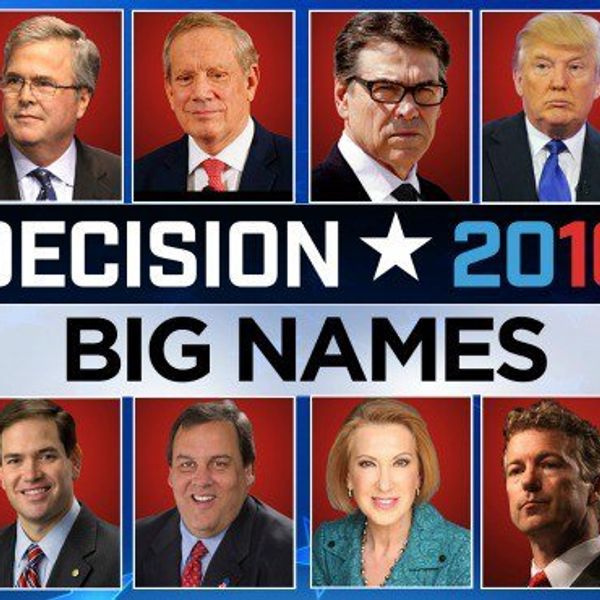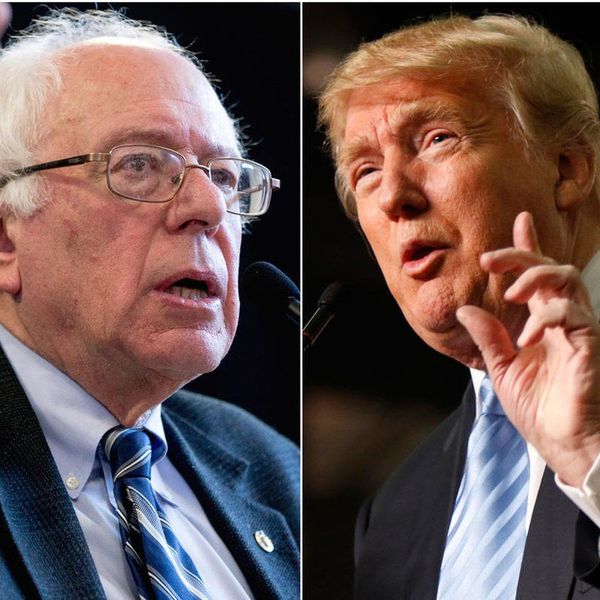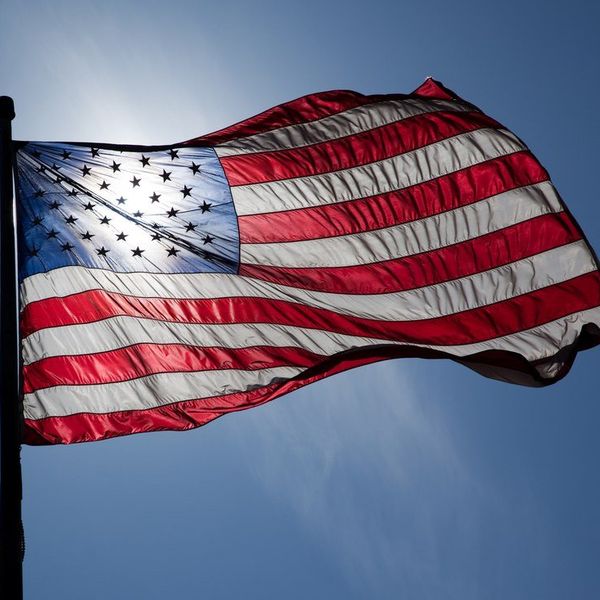This year’s election has been consumed by scandals, controversies, and political polarization on both ends of the spectrum, as exemplified by our two major presidential nominees growing increasingly further apart in policy; Trump has adopted a far-right approach, and Hillary has embraced the progressive, far-left rhetoric used by Vermont Senator Bernie Sanders. While both candidates have been far more moderate in their political views in the past, their actions this year have led to what may be an unprecedented election. Here're six reasons why this year's election season could be considered historic.
This marks the first time a woman became the front-runner and nominee for president in the Democratic Party.
Hillary Clinton accepted her presidential nomination on July 28th for the Democratic Party and effectively became the first woman presidential nominee for a major U.S. political party. There have been other women who have been presidential nominees, though. Jill Stein, for example, was the Green Party’s presidential nominee in 2008.
The Democratic Party is divided.
Even though Bernie Sanders supporters both walked out and protested during the Democratic Convention, the fact that Bernie Sanders endorsed Hillary Clinton will help unify the party. Moreover, Hillary Clinton during her acceptance speech at the convention used political rhetoric similar to Bernie Sanders; the first three days of the convention, even, were spent championing Bernie Sanders’ ideas. Despite Hillary’s egregious ratings and scandals, the Democratic Party will not be permanently divided. The Democratic Party has survived division before — like when Richard Nixon won against Hubert Humphrey after a divided Democratic Party in 1968.
The Republican Party is even more divided.
In 1852, the Whig Party split because of clashing ideas about slavery’s expansion and lost appeal. This collapse led to "conscience Whigs" forming the Republican Party — an event that may be repeated if the Republican Party cannot recover from the issue that is Donald Trump. Current Speaker of the House, Paul Ryan, perhaps was a shining example of the discord among Republicans during this election season, until he begrudgingly endorsed Trump for the sake of having a “uniformed party” that will perhaps prevent “another Democrat [from being] in the White House.” Mitt Romney has been very vocal in condemning both Trump and his policies, along with Ted Cruz and other top dogs of the Republican party. The fact is the Republican Party is losing its appeal as it veers off toward’s Trump’s populism, and this is perhaps exemplified no better than by the fact that 60 percent of Republicans are now embarrassed by their party according to a New York Times/CBS News national poll.
Trump and Hillary both share unprecedented negative ratings.
Presidential candidates from 1980 and onward (with the exception of George W. Bush in 2004) never sported unfavorable ratings higher than 30 percent until Trump and Clinton. Trump, according to Roper Center and IBD/TIPP, has a negative rating of over 50 percent, with Hillary trailing him at nearly 40 percent.
Washington corruption has been blatantly unveiled.
Before Wikileaks even exposed the collusion within the DNC and Hillary’s campaign, the United States electorate demanded serious reform. Petitions to overturn Citizens United, for instance, receive hundreds of thousands of signatures on them. Because of this, anti-establishment candidate Trump has gained heavy momentum, and Hillary Clinton made overturning Citizens United one of her campaign promises.
This may be the first time both presidential candidates were under investigation during an election.
Hillary Clinton, of course, was under FBI investigation for her negligence in using her email server. Her competitor, Donald Trump, has been accused of raping a 13-year-old and is undergoing investigation in Federal Court.





















